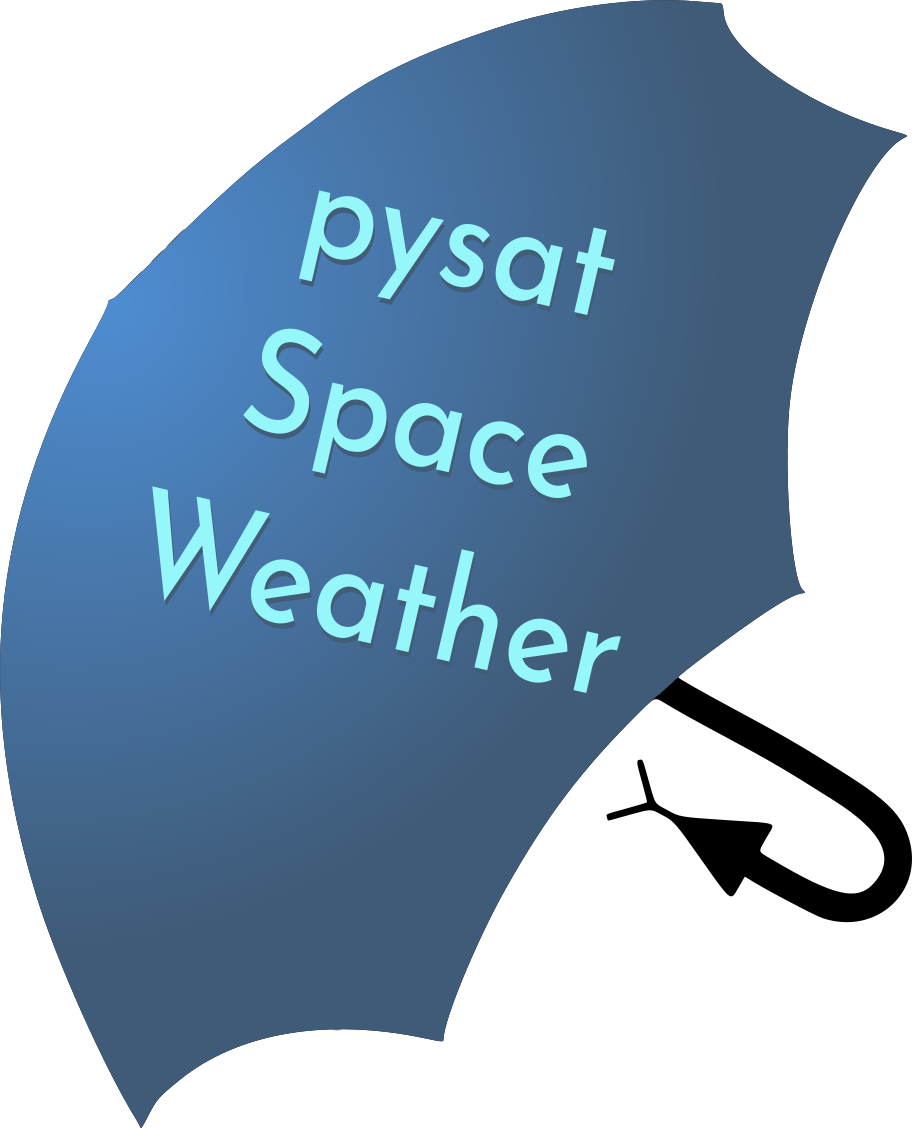This module handles solar and geomagnetic indices needed for scientific and operational projects.
The following instructions provide a guide for installing pysatSpaceWeather and give some examples on how to use the routines.
pysatSpaceWeather uses common Python modules, as well as modules developed by and for the Space Physics community. This module officially supports Python 3.9+.
| Common modules | Community modules |
|---|---|
| netCDF4 | pysat >= 3.2.0 |
| numpy | |
| pandas | |
| requests | |
| xarray |
pip install pysatSpaceWeather
git clone https://github.com/pysat/pysatSpaceWeather.git
Change directories into the repository folder and run the setup.py file. For a local install use the "--user" flag after "install".
cd pysatSpaceWeather/
python -m build .
pip install .
The instrument modules are portable and designed to be run like any pysat instrument.
import pysat
import pysatSpaceWeather
dst = pysat.Instrument(inst_module=pysatSpaceWeather.instruments.sw_dst)
Another way to use the instruments in an external repository is to register the
instruments. This only needs to be done the first time you load an instrument.
Afterward, pysat will identify them using the platform and name keywords.
pysat.utils.registry.register('pysatSpaceWeather.instruments.sw_dst')
dst = pysat.Instrument('sw', 'dst')
